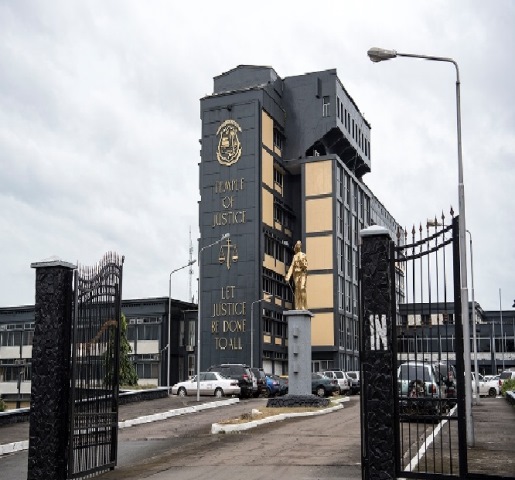The Liberian House of Representatives is embroiled in a leadership crisis, deemed a “chaotic trend” by the Supreme Court, stemming from the unconstitutional election of Representative Richard Nagbe Koon as Speaker while the legitimate Speaker, J. Fonati Koffa, remains in office. This action, though illegal, has been backed by the Executive branch, which has interpreted a prior Supreme Court opinion regarding ultra vires actions within the House to justify their support for Koon. This interpretation has exacerbated the crisis, creating a dangerous precedent for disregarding constitutional processes. The situation calls for a definitive ruling from the Supreme Court to clarify the legal framework and restore order.
The core of the dispute lies in the interpretation of the Constitution and the Supreme Court’s role in upholding its principles. The Executive’s backing of Koon’s election, despite its unconstitutional nature, underscores a concerning disregard for the rule of law. The Supreme Court, having previously addressed the issue of ultra vires actions within the House, now faces the responsibility of clarifying its position and explicitly addressing the legitimacy of Koon’s election. This clarification is not merely a procedural matter; it is fundamental to preserving the integrity of the Liberian political system and preventing further erosion of constitutional principles. The Court’s previous ambiguity has allowed the Executive to exploit the situation, further deepening the political divide.
Compounding the issue is the involvement of the Economic Community of West African States (ECOWAS), whose parliamentary body has attempted to mediate the impasse, albeit unsuccessfully. The so-called majority bloc, which supports Koon, has actively resisted ECOWAS intervention, even going so far as to request the withdrawal of three Liberian representatives from the ECOWAS Parliament who were appointed under Koffa’s leadership. This act of defiance highlights the bloc’s commitment to maintaining their position, even at the expense of regional stability and cooperation. The ECOWAS Parliament’s rejection of this request underscores the illegitimacy of the majority bloc’s actions. However, the persistent resistance to mediation further entrenches the crisis and underscores the need for a decisive legal resolution.
The Supreme Court, as the ultimate interpreter of the Constitution, bears the crucial responsibility of resolving this crisis. Its previous pronouncements on the matter have been insufficient, leaving room for ambiguity and manipulation. The Court must now issue a clear and unambiguous ruling that unequivocally addresses the legality of Koon’s election and affirms the rightful Speaker of the House. This ruling should not only clarify the immediate leadership dispute but also serve as a strong reaffirmation of the Constitution’s supremacy and the importance of adhering to legal processes.
The Court’s decision must be grounded in a thorough and impartial interpretation of the Constitution, devoid of political influence. It should clearly articulate the principles underlying the separation of powers and the proper procedures for electing the Speaker of the House. Furthermore, the Court should outline the consequences of violating these procedures, sending a strong message that such actions will not be tolerated. This decisive action will not only resolve the immediate crisis but also set a vital precedent for future disputes, reinforcing the rule of law and preventing further political instability.
The future of Liberian democracy hinges on the Supreme Court’s ability to effectively address this chaotic situation. A strong and unambiguous ruling will not only resolve the immediate leadership crisis but also reaffirm the importance of constitutional adherence and the rule of law. This is a crucial moment for the Court to demonstrate its independence and uphold its role as the guardian of the Constitution. Failure to do so would further destabilize the political system and undermine public trust in the judicial process, setting a dangerous precedent for future power struggles and potentially jeopardizing the country’s democratic future.














